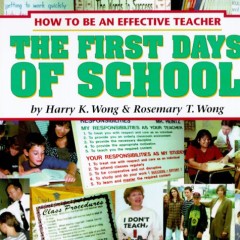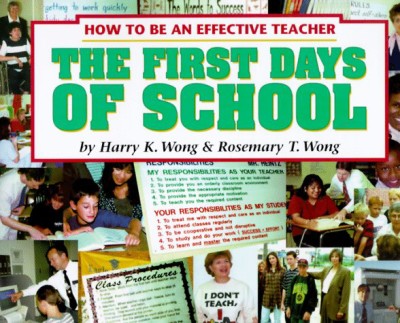This post is dedicated to all the teachers in the final countdown before students arrive. Solidarity.
“What would Harry do?” I whisper under my breathe. For nearly ten years, I’ve asked myself this question every day during the month of August.
My well-worn copy of First Days of School lies limply on the coffee table offering me support and guidance for my insecurities about the new school year.
Every year the routine is the same. Each night, for weeks leading up to the start of the new year, just when I begin to drift off to sleep, my mind fires up reminders of all the little things I haven’t finished preparing for my classes. My syllabi aren’t finished. My gradebook isn’t set up. My bulletin boards are bare. Heck, I have a new classroom and the boxes are everywhere! How will I have time to implement all my Pinterest bulletin boards ideas, laminate new classroom management tools, and design highly engaging, culturally relevant curriculum–not to mention pickle cucumbers, finish that book I started this summer, and cross stitch that doilie that’s been on my to-do list for three years– with barely one week before kids show up?!
By far, this was the busiest summer of my career, filled with family events, professional trainings, leadership camps, and teaching in China. Furthermore, my new co-teaching role as ASB and Leadership adviser has consumed much of my summer planning time. Wanting to start the year strong, has lead to countless hours, emails and text messages theorizing and planning a servant-leadership program. My excitement for this new opportunity is only tempered by one tiny detail: the desire to be prepared. This manifests itself in an obsession to be over-prepared.
Yes, I admit it. I’m a perfectionist. Hence, my regular school nightmares.
However, just when I feel the wave about to overtake me, I hear a still, small voice.
Smile. Set high expectations. Be firm but warm. Build relationships.
Of course Harry is right! All this worry is for naught!
Are the essential things done to make my room an inviting, safe space for learning to happen? Do I have an opening lesson that puts relationships and rigor at the center of learning?
Then I’m ready. And so are you.




